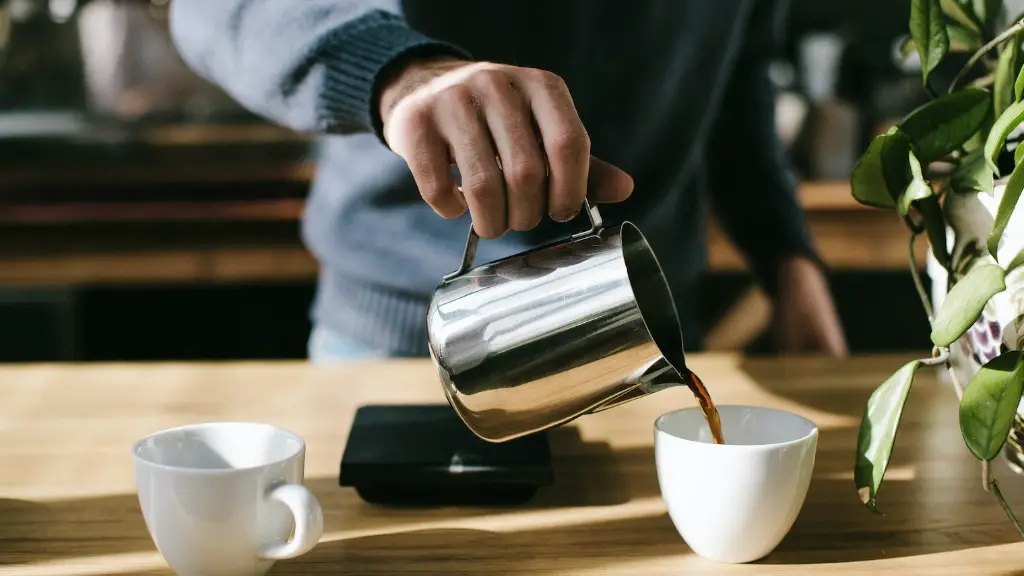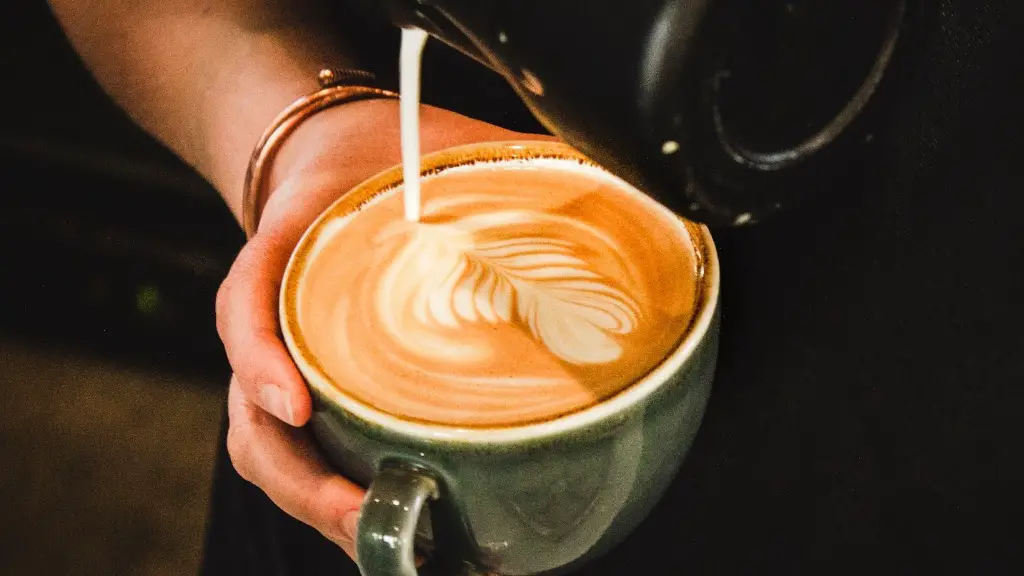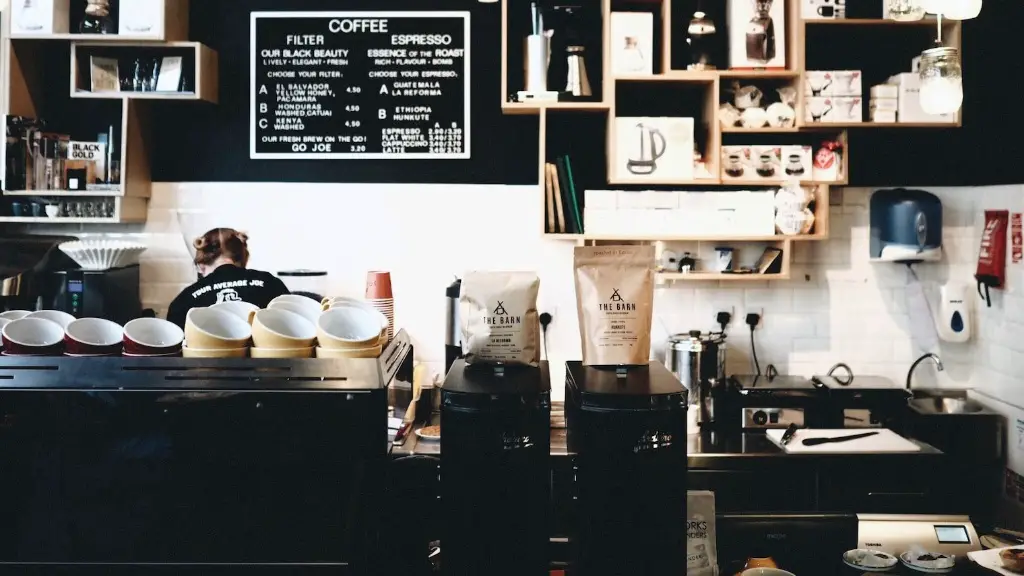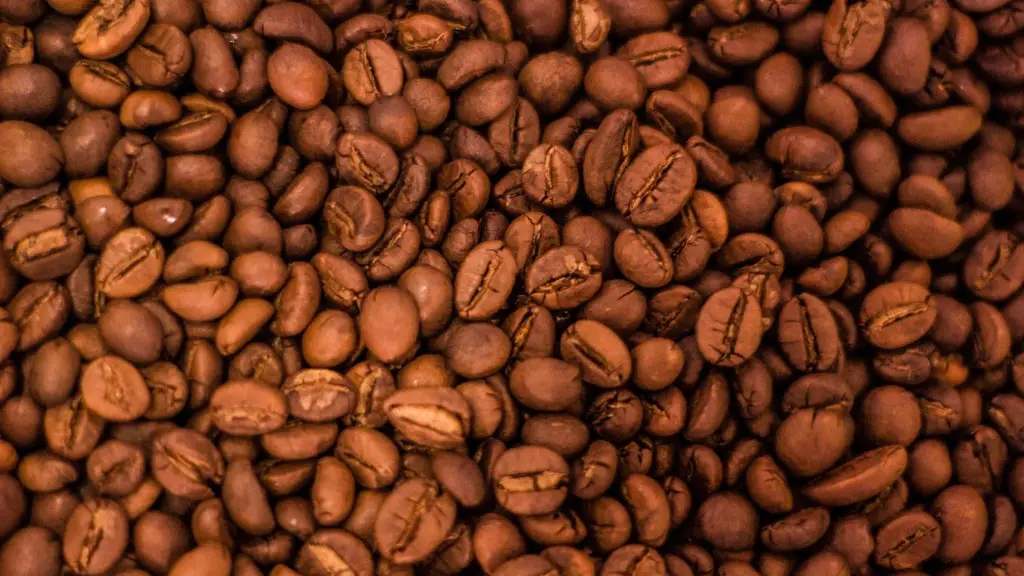Humans have been drinking coffee for centuries and it has become one of the most popular drinks in the world. But is there an age where it is safe to drink coffee? Well, many experts believe there is no one definitive answer.
Coffee contains caffeine and is thought to have mild stimulating effects when consumed. While caffeine can provide extra energy, it is also considered addictive and can lead to serious health problems if consumed in excessive amounts. As such, it is important to be aware of the risks associated with drinking coffee, especially for younger people.
The age of drinking coffee is recommended to be eighteen or older, as caffeine can increase stress levels, blood pressure, and heart rate in young children. In addition, caffeine can affect the developing brain, which could affect both academic and social functioning, so it is important to be aware of this risk for younger individuals.
Despite this, the amount of coffee that is safe for each person can vary. A typical cup of coffee contains around 95-200mg of caffeine, though the amount can vary depending on the type of coffee and how it is brewed, as well as factors such as age and body weight. For younger people, it is recommended to limit caffeine intake to no more than 100mg per day, or one cup of coffee.
It is also important to be aware of the effects of caffeine on different individuals. Some people may be more sensitive to the effects of caffeine and may need to limit their intake even further. Caffeine can also interact with certain medications and medical conditions, so it is important to speak to a doctor if there is any concern.
In conclusion, there is no definitive answer as to what age it is safe to drink coffee. However, it is important to be aware of the risks involved and to consult a doctor if there is any concern. For those over the age of eighteen, it is recommended to limit caffeine intake to no more than 100mg per day, or one cup of coffee.
What Are The Healthy Benefits of Coffee?
Coffee is more than just a popular beverage; it is also a source of natural antioxidants, nutriments and minerals. Studies have shown that coffee can play a role in reducing the risk of certain diseases, such as type 2 diabetes, heart disease, and some cancer types. Additionally, coffee has been found to enhance cognitive functioning, increase alertness and reduce fatigue, making it a great way to boost energy and focus.
Coffee also has anti-inflammatory and anti-bacterial properties, making it a great beverage to protect the body from sickness. Additionally, studies have shown that coffee may help to reduce the risk of developing depression. Finally, coffee has been found to reduce stress and increase focus, making it the perfect beverage for those who need an extra boost of energy and motivation.
In short, coffee can provide a range of health and wellbeing benefits, from helping to reduce the risk of certain diseases to boosting energy and focus. However, it is important to be aware of the risks associated with drinking coffee, especially for younger people, and to limit intake to no more than 100mg per day.
How Does Caffeine Affect Sleep Patterns?
Caffeine is a stimulant that affects our bodies in a variety of ways, including in the way of sleep patterns. Consuming caffeine can make us feel more alert and awake, but it can also make it more difficult to fall asleep or stay asleep. Studies have also shown that caffeine can prevent us from reaching the deeper stages of sleep, which are important for our physical and mental wellbeing throughout the day.
It is recommended to limit caffeine intake, particularly in the later hours of the day, as this will help to ensure that we get the rest we need. Consuming caffeine too late in the day can lead to difficulty sleeping and can cause us to feel fatigued during the day. It is important to be aware of our own caffeine sensitivity, as some people may be more affected by caffeine than others.
In conclusion, it is important to limit our intake of caffeine, particularly in the later hours of the day. By doing this, we can ensure that we get the rest and energy we need to remain alert and awake throughout the day. It is also important to be aware of our own caffeine sensitivity and to make sure we are getting enough sleep.
How Does Coffee Affect Heart Health?
Coffee is one of the most popular beverages in the world and is known for providing energy and stimulating effects. However, many people do not realize the impact that coffee can have on heart health. Studies have shown that coffee can protect against heart disease, as it can reduce the risk of blood clots, cholesterol levels, and inflammation.
Coffee also contains a variety of antioxidants which can help to protect the body from oxidative damage, a major contributor to heart disease. Additionally, it is a great source of magnesium, potassium, and B vitamins, which are important for heart health. However, it is important to be aware that consuming too much caffeine can be detrimental to heart health, and to limit intake to no more than 100mg per day.
In conclusion, there are many health benefits associated with drinking coffee, including its potential to protect against heart disease. However, it is important to be aware of the risks associated with too much caffeine, and to limit intake to no more than 100mg per day.
What Are Habits People Use to Enjoy Coffee?
Coffee is a popular beverage amongst many, and it can be enjoyed in a variety of ways. Some people may enjoy brewing their own coffee at home and adding their own flavorings, while others may prefer to go out for a cup of coffee from a cafè. Additionally, some people have daily routines and rituals that involve drinking coffee, and these can become rituals that create fond memories.
It is important to have good habits around coffee drinking, as this can both enhance the experience and ensure that one does not consume too much caffeine. For example, drinking coffee in moderation, having regular ‘coffee breaks’, and reducing sugar and cream in coffee can help to ensure that coffee drinking is both enjoyable and healthy.
In conclusion, there are a variety of ways to enjoy coffee and different habits that people use to ensure that they get the most out of their coffee-drinking experience. It is important to be aware of the risks associated with drinking too much caffeine, and to ensure that coffee-drinking habits are both enjoyable and healthy.
What Are Popular Coffee Substitutes?
For many, coffee is a morning ritual, providing a hit of energy and focus throughout the day. However, for those looking for an alternative, there are a variety of coffee substitutes available. Herbal teas such as chamomile, mint, and nettle can provide a soothing and calming effect, while decaffeinated coffee provides an alternative for those looking for an energy boost without the added caffeine.
Other alternatives include green tea, yerba mate, and cocoa. Green tea has a slightly different flavor than coffee, but it can provide an energy boost, is high in antioxidants, and can help to reduce stress. Yerba mate is another good alternative which is known for providing a sustained energy boost and can be enjoyed both hot and iced. Finally, cocoa has a rich and mellow flavor, and is high in antioxidants and minerals.
In conclusion, there are a variety of alternatives to coffee available for those looking to reduce their caffeine intake or find a different flavor. Herbal teas, decaffeinated coffee, green tea, yerba mate, and cocoa are all good alternatives with different flavors, health benefits, and energy boosting effects.
What Are The Most Popular Cafes?
Cafes are an increasingly popular place to enjoy a cup of coffee, with more and more cafes popping up across the globe. There are a variety of different types of cafes, from traditional European-style cafes, to more modern, hipster cafes. Additionally, some cafes may serve specialty coffees, such as cold-brew or nitro coffee, as well as various snacks and baked goods.
The most popular cafes tend to be those that have good coffee, friendly staff, and a welcoming atmosphere. Additionally, many cafes are beginning to offer unique experiences such as latte art classes, coffee tastings, and barista training. These types of cafes can provide an enjoyable and educational experience for those who are interested in coffee.
In conclusion, cafes are becoming increasingly popular, and there is a wide range of different types to choose from. It is important to find a cafe that suits one’s needs and offers an enjoyable experience, as well as good-quality coffee. Additionally, cafes may offer unique experiences for those who are interested in exploring the world of coffee.





